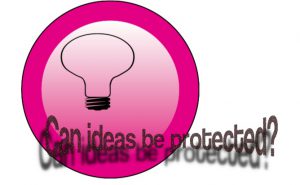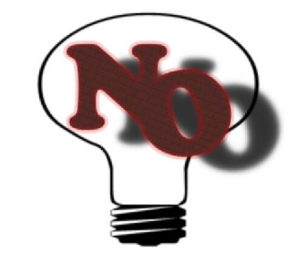Ideas: How Far Can You Bring It?

Inventors may encounter problems regarding the translation of their thoughts into a productive item— an intangible material converted into a product which can be seen and touched, and can help the society industrially, commercially and economically. Some people come out to brilliant ideas to create something that would benefit mankind.
But remember, no matter how brilliant an idea is, it is still an idea; a thing that cannot be patented, unless carried out to produce an invention. In this case, the inventor may struggle to find a mean or way to develop an invention but has the knowledge to do it, or the inventor just have the thought but lacks the knowledge of rendering the act of creation. Definitely, ideas cannot be protected, period.
If some legislations allow the protection of “invention ideas,” of course, he/she will be obliged to create an invention, and if he/she lacks the knowledge, that’s the end of it. Upon the protection of the “idea,” that idea cannot be carried out by other people, even if they have the skill to create an invention out of that idea, otherwise it will be a case of infringement. Other people who have the idea should have created something productive. Putting it in shorter words, patenting ideas is just pointless.

Still, ideas play a very important role in the process of invention. Of course, all patented products or processes or whatever it may be, root from the minds of our noble inventors. A mere idea is different from conception, as according to the US patent laws. Conception is an idea plus the knowledge and skill of the person to bring such perception into the real world, whether in the form of a product, process or anything it may be, as long as it is useful to mankind.
For a conception to be patented, it should be accompanied by an explanation of who, what, where, when and how so that people could make and use such invention. Conception is just the creation of something in the mind; the finish product is not yet brought into being.
An inventor should consider the field of his/her expertise in the first place. If the person can roughly sketch his potential invention (or list the procedures in case of a process), then he/she is heading to the right direction. If the person has a very brilliant idea and thinks that such will greatly help mankind, then it is advisable for him/her to seek for the assistance of an engineer regarding the creation of the device and discover certain ideas that will help him/her carry out the invention. Engineers may provide the prototype or some drawings. There, at least, has already an initial step towards the production of a product worth patenting.
To file for a patent, you do not have to necessarily used or made such invention, so as long as you have a written document proving that you know how to make and use such invention, then your invention can be patented earlier than expected. Therefore, prototypes are not enough to be patented; you should be equipped with the proper knowledge on how to produce and use such invention.
By Aurobinda Panda Founder & C.E.O of Lex Protector International Law Office Ph: +91-9658577326 Email | Website | Facebook | Twitter | Blog
